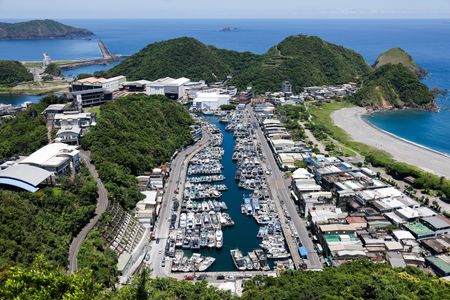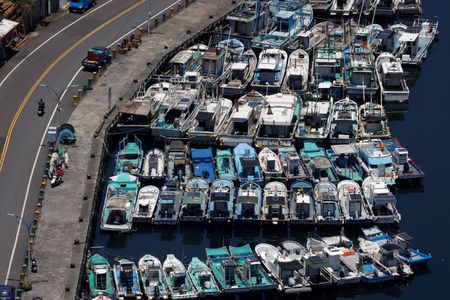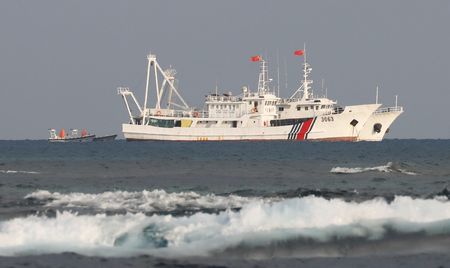By Fabian Hamacher and Yi-Chin Lee
SUAO, Taiwan (Reuters) -Authorities in Taiwan were scrambling on Tuesday to evacuate hundreds from the likely path of Typhoon Podul, expected to make landfall on the island’s southeastern coast, while nearby areas battle to recover from the havoc caused by previous storms.
Taiwan is regularly hit by typhoons, generally along its mountainous, sparsely populated east coast facing the Pacific.
The mid-strength Typhoon Podul, packing gusts of as much as 155 kph (96 mph), was heading for the southeastern city of Taitung as it intensifies and was expected to make landfall nearby on Wednesday, weather officials said.
In the eastern county of Hualien, nearly 700 people will be evacuated from their homes to guard against the risk of overflow from a natural dam formed after a landslide set off by a previous typhoon.
“We must especially urge people living downstream to follow government instructions and evacuate,” said Chu Chung-jui, an official of the National Science and Technology Center for Disaster Reduction.
“Authorities are closely monitoring this landslide lake,” he told a Taipei briefing for the typhoon taskforce.
After making landfall, the storm was expected to hit the densely populated western coast before heading for China’s southern province of Fujian later this week.
As much as 600 mm (24 inches) of rain was forecast in southern mountainous areas over the next few days, the Central Weather Administration said.
More than a year’s rainfall fell in a single week this month in some southern areas, unleashing widespread landslides and flooding, with four deaths.
Authorities were also working to evacuate those whose homes were damaged by a July typhoon that brought record winds and damaged the electricity grid in a rare direct hit to Taiwan’s west coast.
Swimmers on a beach near the northeastern port of Suao were enjoying the last of the fine weather before warnings of high seas went out and the coast guard cordoned off coastal areas.
“Here in the east, we always have typhoons or earthquakes, so we are not really scared of those, but rather used to them,” said Yu How-ling, a 30-year-old beach visitor.
(Reporting by Yimou Lee, Fabian Hamacher, Ann Wang and Yi-Chin Lee; Editing by Clarence Fernandez)











